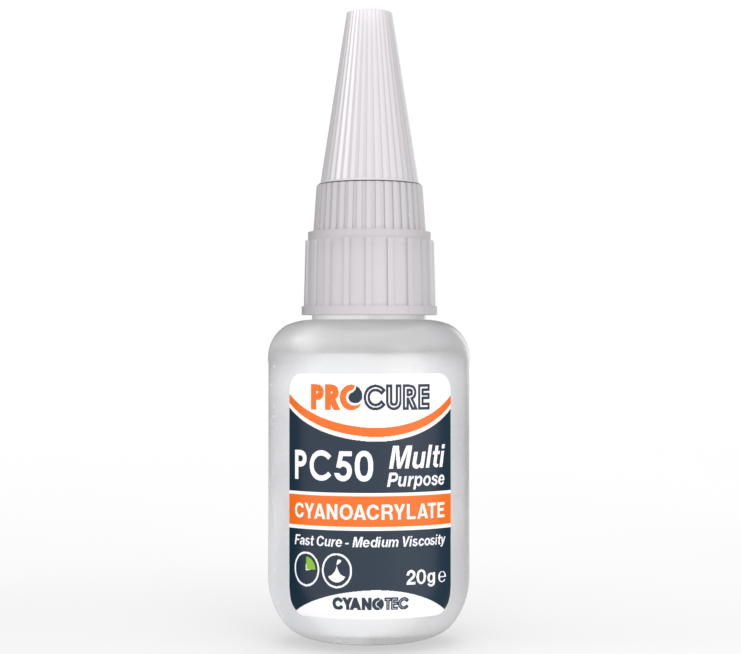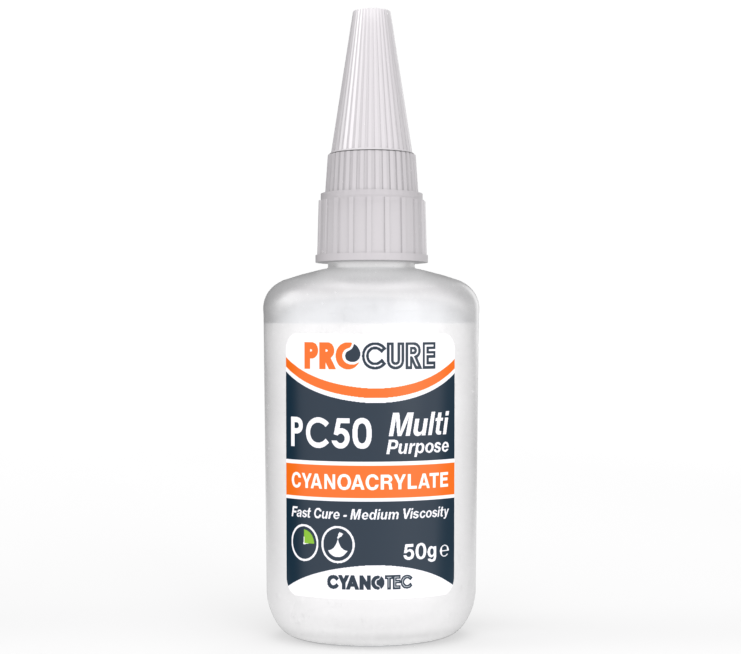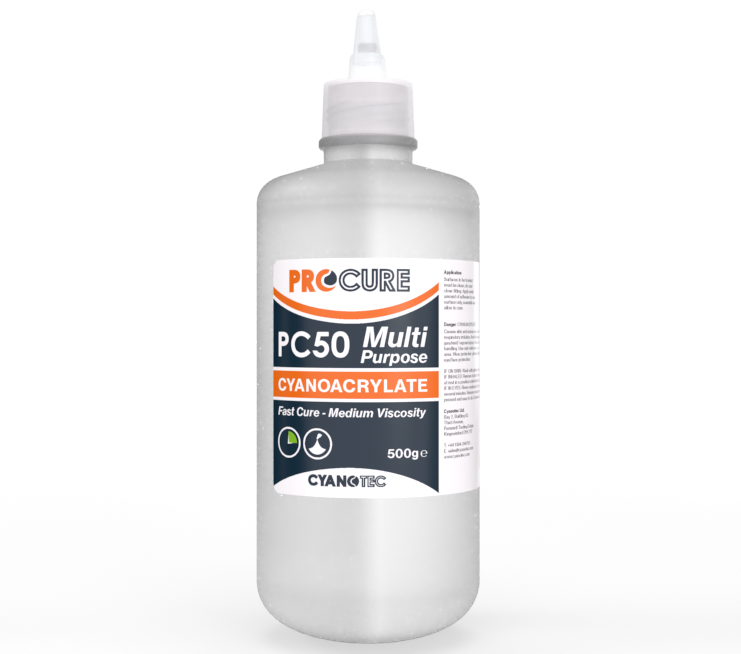Product Information
Procure PC50 cyanoacrylate adhesive is a multi purpose, fast curing, medium to high viscosity cyanoacrylate. PC50 exhibits some gap filling
properties. It will bond almost any substrate, including most plastics, rubbers, wood, paper, leather and metals to themselves and each other.
Directions For Use
1. Make sure the surfaces to be bonded are clean and dry.
2. Dispense adhesive to one surface only. Apply only enough to leave a thin film after compression.
3. Press parts together and hold firmly for a few seconds. (Maximum strength is achieved in 24 hours).
4. Procure activator can be used to cure exposed adhesive outside of the joint, to help prevent blooming.
5. Wipe off excess adhesive from the top of the container and recap.
Activation
Activators PC750, PC780 and PC790 may be used with cyanoacrylates where a faster cure speed is required. Fixture times of less than 2 seconds can be obtained with most cyanoacrylates. Testing on the parts to measure the effect is recommended.
Priming
Procure PC77 primer is recommended for use on low energy plastic surfaces such as polyethylene, polypropylene, PTFE and thermoplastic rubber materials.
Apply to one surface only. PC77 also has a mild activating effect which may accelerate the cure speed of cyanoacrylate adhesives.
Debonding
Cured cyanoacrylate may be removed from most substrates, and parts disassembled, with Procure PC68 debonder – however, ensure to test compatibility of the substrate with PC68 first as this may dissolve some plastics.
It is not possible to fully remove cyanoacrylate from fabrics.
Dispensing
Factors that affect dispensing are pressure, time and needle size. As a general reference low viscosity liquid would need a small needle diameter and less pressure, a high viscosity liquid would need a larger needle diameter (tapered recommended) with higher pressure to dispense. Information on the recommended hand dispensing tip can be found in the Technical Data Sheet (TDS).
General Information
For information on safe handling of Procure PC50 cyanoacrylate adhesive consult the Safety Data Sheet (SDS).
 Adhesive Supplier
Adhesive Supplier 



